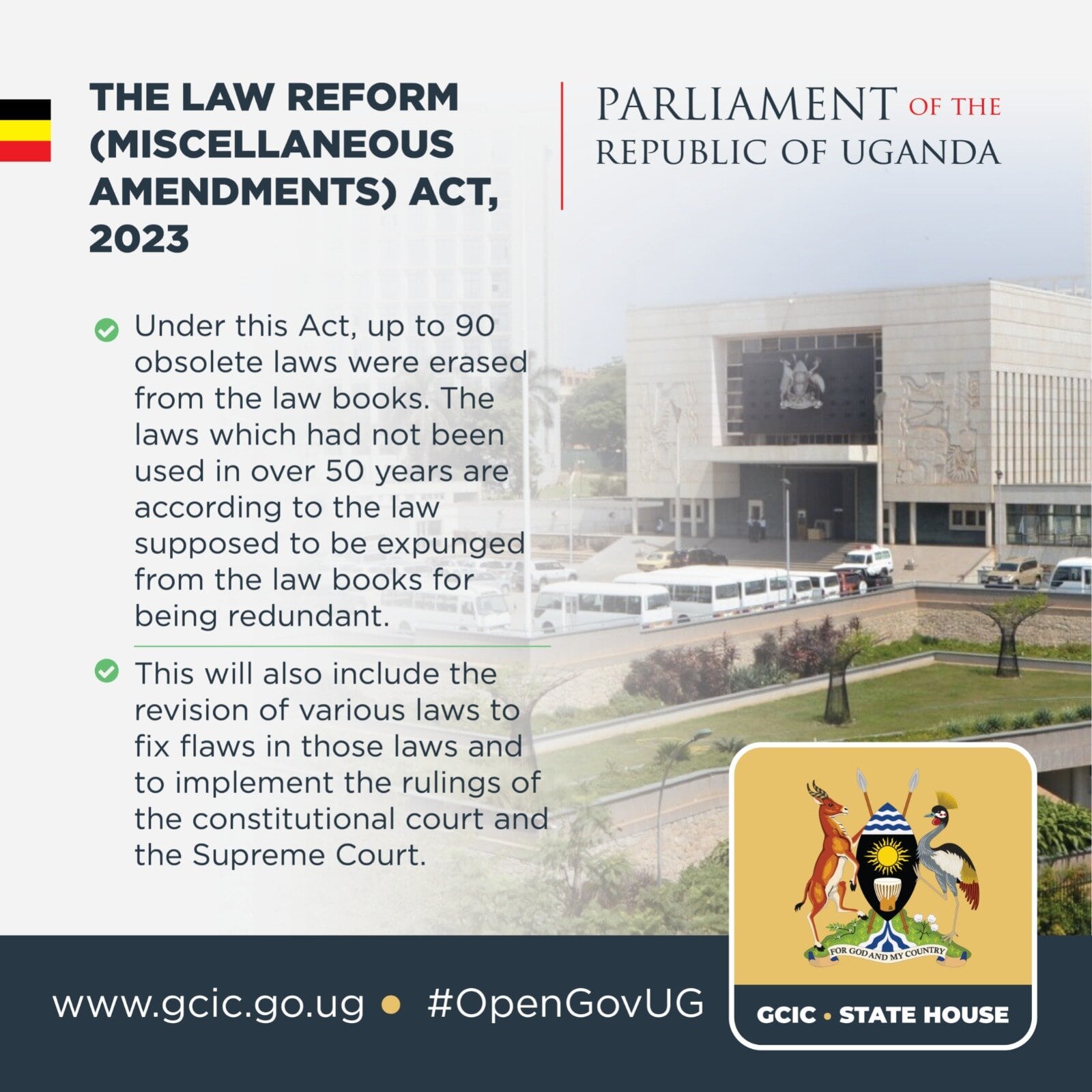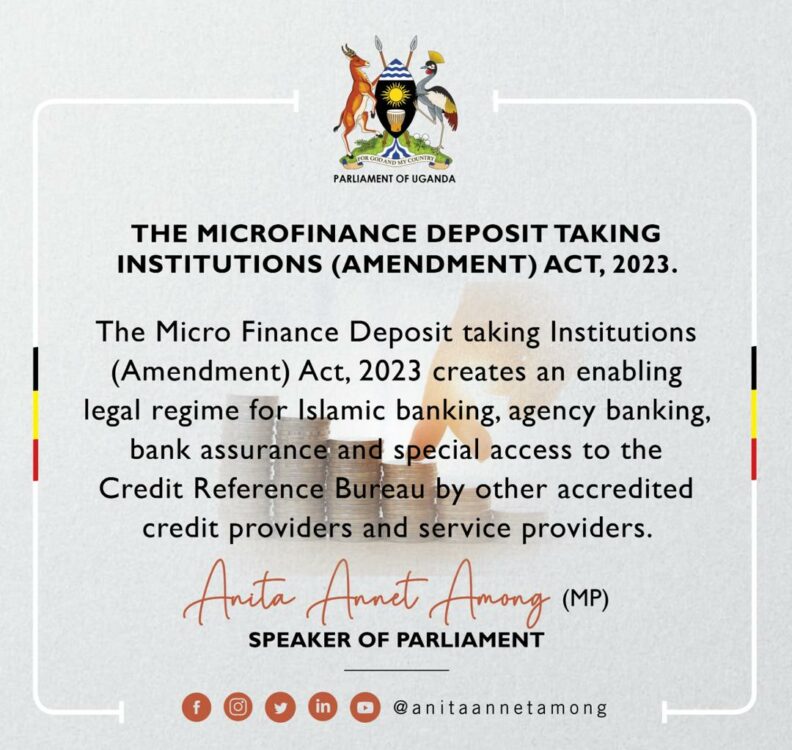National Payments Systems Bill
January 20, 2023
A Review of the National Payments Systems Bill in Uganda.
Government has finalized consultations and the drafting of the Uganda National Payments Systems Bill (Bill) which will regulate all electronic payments in Uganda. This update is to explore the Bills highlights, put forward recommendations and make a case for wider consultations with existing small market operators.
I. AN OVERVIEW OF THE SECTOR.
Uganda is a cash economy, Electronic payments account for only 20% as compared to cash, which is 80%. However, Uganda has recorded unprecedented growth in electronic payments, which has led to a sharp fall in use of paper payment instruments like cheques and others.
Some of the existing electronic Payment operators and systems include:
Bank of Uganda (BOU);
- Uganda National Interbank Settlement System (UNIS) – It is an RTGS for interbank fund transfers.
- Electronic Clearing System (ECS) – this is used by BOU to clear paper based instruments, electronic credit
- transfers and direct debits.
- Central Securities Depository (CSD) – this system is used to register ownership and transfer of government
- securities.
Commercial Banks;
- Funds Transfers These are used by bank customers to transfer money from one account to another.
- Automated Teller machines (ATMs) These enable bank customers to withdraw from their bank accounts using readable plastic cards from convenient places.
- Internet banking – it enables customers to undertake financial transactions on their bank accounts through web based technology.
- Mobile financial services -these are banking services accessed by customers through a telecom company as an intermediary, services may include lending like Mokash, Wewole, Mobile Money and more.
- Cards – These are payment instruments issued to bank customers like debit and credit cards.
- Point of Sale (POS) – These are automated machines that allow bank customers to purchase goods using their cards at retail stalls, restaurants, Bars etc.
Private Sector Payment services (Use of Third Parties);
- Inter switch (Retail payments switch) – This enables card transactions to be routed between participants. Examples include VISA, MasterCard, American Express and others. They enable a person to transact without the need to directly use the service of a bank from which they hold an account.
- Automated Transfer System Depository (ATSD) – Uganda Securities Exchange uses it for sale and transfer of listed equities and securities.
- Mobile network operators & mobile payment services ? these are offered by telecommunications companies with support from their Bankers. Here mobile telecoms act as intermediaries to perform transactions on behalf of financial institutions thence providing a more convenient Point of sale using GSM technology.
- Stored value Cards- these are prepaid cards like fuel cards, gift cards etc.
- Aggregators- these are service providers through which banks, non-financial institutions, telecoms and other Companies process payment transactions.
- Remitters- these are service providers that transfer funds on behalf of a client from one jurisdiction to another.
II. REGULATION AND LICENSING OF PAYMENT SYSTEMS.
All payments system operators will require a license from BOU.
This brings us to the Question.
Who is required to obtain a license?
- The Bill permits financial institutions to operate payment systems without a license. This is because financial institutions are primarily licensed to provide payment services. Apart from financial institutions, all other operators must obtain a license, these may include the following;
- Telecommunication Companies operating mobile money platforms like MTN, Airtel and Africell.
- Stock exchanges operating independent payment systems.
- Money remittances, though regulated by BOU, the Bill does not expressly exempt them from licensing.
- Card operators like MasterCard, VISA, America Express, and Union Pay etc.
- Companies issuing pre-paid cards including fuel cards, gift cards.
- Retail outlets operating inter switch machines like Supermarkets, Restaurants and Bars etc.
- Aggregators or payment gateways.
How to apply for a license.
Only Companies are permitted to apply for a license subject to submission of the following;
- Rules of the payment system.
- Incorporation information.
- List of fit and proper persons to act as directors.
- Financial position and repute of the shareholders.
- A clear organizational structure and capital of the entity.
The Bill also requires operators to have a prescribed minimum capital, which will be set by BOU in subsequent regulations.
In addition to the above:
An Applicant for a license must have specific objectives in its memorandum and Articles of Association, as follows;
- To clear payment instructions between banks and other institutions.
- To transfer funds from one account to another using electronic devices.
- To provide technological services that facilitate switching, routing, clearing etc.
- To transmit and order payment instructions etc.
Companies in Uganda are permitted to engage in any lawful trade with sanction of its directors. It is not a legal requirement for a Company to have specific objectives. We therefore question the applicability of a clause in the Bill that contradicts the Companies Act (primary Act).
III. FEATURES OF THE BILL.
The National Payments Systems Council:
It is suggested as the policy making body for electronic payments. It will be composed of representatives from Ministry of finance, Capital Markets Authority, National Information Technology Authority, Uganda
Communications Commission, financial institutions, Uganda Bankers Association, Telecommunication companies etc.
Electronic Money Issuances and Transfer:
The Bill defines electronic money as a monetary value stored
electronically. This definition is wide enough to include a data message, crypto currency etc. Electronic money issuers must obtain a license before operating in Uganda. These include mobile money companies, crypto-currency houses etc.
Entities intending to issue electronic money are required to establish a subsidiary Company for the purpose of applying for a license. However, the Bill is not clear on whether the subsidiary entity must be locally incorporated as earlier asserted by some legal practitioners.
Statutory Accounts
Electronic money issuers are required to open different types of bank accounts with licensed financial institutions.
These include;
- Trust Accounts;
- They hold customer funds and such funds are only applied for their benefit.
- Approved trustees who become a body corporate with approval from BOU manage the Account.
- Cash balances on the account must be equal to the electronic money issued.
- Special accounts; these are to be opened only by financial institutions intending to issue electronic money with approval from BOU.
- Dormant accounts; these are accounts that have not registered a transaction for more than 12 months. The Bill proposes closure of such accounts subject to notification of the account holders; it also allows recovery and investment of funds on such accounts.
Permissible transactions and prohibited Activities.
Under the Bill, electronic money can only be used for the following purposes;
- Domestic payments and transfers,
- Bulk transactions like salary payments such as benefits and pensions,
- Over the counter and cash in / out transactions,
- International remittances,
- Credit products& saving products in partnership with financial institutions.
The Bill further prohibits electronic money insurers from receiving and taking deposits within the meaning of a financial Institutions Act.
The use of airtime as electronic money is also prohibited.
Insolvency & Collateral Arrangements of Licensees.
Under the Bill, Insolvency proceedings against a service provider or licensee only apply prospectively not
retrospectively; this nullifies the relation back principle akin to insolvency theory.
The Bill also requires operators to have adequate liquidity to facilitate settlement of a payment instruction.
- Collateral Arrangements.
These are agreements between licensees (collateral takers) and other entities (collateral givers) that undertake to underwrite the risk of insolvency of a licensee. The Bill proposes that a prescribed amount of
money or moneys worth be set aside by the collateral giver to act as security for an insolvent licensee.
The security so pledged ceases to be property of the collateral taker.
IV. CHALLENGES OF UGANDA?S PAYMENT SYSTEM SECTOR.
Fraud:
Ad valorem pricing:
This occurs when a payment operator charges a random commission not based on cost of processing an order.
Skimming of Payments:
This happens where a service provider illegally retains a certain portion of money transferred.
Interoperability:
Payment systems in Uganda are arguably not inter linked to enable quick settlement of payment orders.
Poor dispute resolution module:
Market participants lack capacity to investigate and resolve disputes in a just and timely manner
Lack of a licensing criteria.
Liquidity challenges:
Several Companies participating in the sector are start-ups; thus, finance is a constant threat and eminent danger to operations.
V. DOES THE BILL SOLVE THE PROBLEMS?
Yes, the Bill solves some of the key challenges of the sector.
VI. RECOMMENDATIONS.
Licensees need to be categorized to ease regulation: the Bill should classify licenses as follows;
- Class A – For electronic money issuers and transferors.
- Class B – Retail payments handlers.
- Class C – Aggregators and remitters.
Each class with its unique capital requirements, license and fees payable.
- The Bill should exempt or set lower minimum capital requirements for market participants that have been in operation for more than 3 years before enactment of the law.
- The Bill should expressly prohibit anti-competition practices.
- National payments system council is not necessary; its mandate is a duplication of the ministry of finance and BOUs role, it should be deleted.
- Requiring Applicants to have specific objects is not legally tenable, as thus, it should fall.
- The Bill should allow electronic money issuers to take deposits and offer saving services to their customers. This will enable mobile customers to save money on their accounts by either fixing it for a particular period of time or otherwise. This will improve the savings culture and broaden the savings pool in Uganda.
- A special financial service tribunal should be created to entertain payments, Capital Markets, Telecommunications, Banking and other financial related matters. This will ease dispute resolution and reduce case backlog in mainstream Courts.
- The Central Securities Depository and other payment systems must be linked with mobile money platforms to ease purchase of capital markets products. This will improve our investment culture, capitalize Government and local Companies.
CONCLUSION
The bill needs to be more consulted rather than rushed, if not, it risks creating monopolies thus subduing its many benefits.




